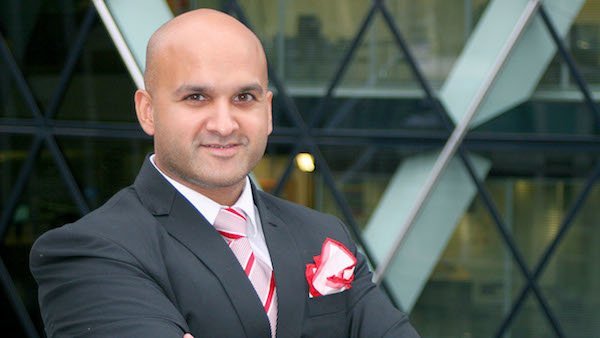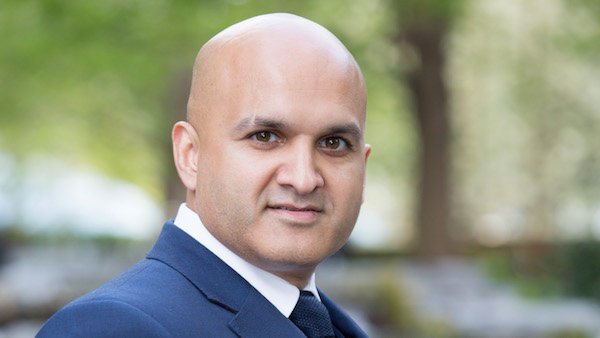FXcompared, CEO Daniel Webber recently sat down with Paresh Davdra, Co-Founder and CEO of RationalFX. The conversation covered a lot of topics, including company culture, blockchain and the future of money transfer.
RationalFX turnover is about £1.4 billion, it grew over 65% over the past year, and has over 150,000 registered customers across the RationalFX and Xendpay brands.
Daniel: What led you to co-found RationalFX?
Paresh: I was twenty-four at the time, so I had only been a year out of university, and I wanted to do something different, I just didn’t know what. I applied for a mortgage with my father, as he was helping me, and my salary was about £20,000 a year, so the bank rejected us outright and I couldn’t get the mortgage I wanted. This only spurred me on more and made me want to do something even more. At the time, I knew Rajesh Agrawal.
Rajesh had recently resigned from his job. From recollection, I just kept on asking and saying to him, “Whatever you are doing, I want to be part of it, make me part of it, take me along and we will do this together.” After about six weeks, he met me for a coffee and said, “This is the plan.” And without hesitation I said, “Yeah, I’m in. Let’s do this.” The rest is pretty much history.
Daniel: What do you think sets RationalFX apart from its competitors? There’s no doubt it’s a competitive space. If you can talk a little bit about the differences between the UK and some of the European markets you’re in, that would be very interesting.

Paresh: Sure, to be honest with you, in both the UK and Europe, one of the biggest things we’ve always focused on is relationships. Since the very beginning, we have had a desire to make sure that we maintain the relationships with people who we work with. We want people to leave us thinking that they’ve had a world class service, so we make sure we address anything that customers had feedback on about the service. We have maintained that culture premise throughout the organization. I’d like to think that if you go and speak to anyone in our company, they’ll all have that same cultural mission where the customer comes first; we are very focused on the customer and maintaining that relationship with the customer and building that rapport. This helps us ensure that there is a long term business relationship with the customer - it’s not just, let me try and get this deal off the ground and get a transaction.
Our approach is very much long term focused. I think that that’s what sets us apart, especially from the banks. Banks aren’t thinking, what else does this customer need, what else will they be doing in the short term. Whereas we’re thinking about the client from the very beginning. We strive to build this entrepreneurial culture, so everyone’s thinking a bit more ahead and outside the box. Everyone really feels part of the company and very passionate about what we are doing. I think that also stands us apart, people can see that everyone involved in RationalFX is really passionate and dedicated to what we’re trying to achieve here. The customers can feel that and I think that’s really important.
Daniel: As the CEO - what have you done to build a culture like that?
Paresh: I like to be very involved. So it’s not a dictatorship-style environment. I’m with the guys all the time everyday, I’m on the floor, I’m talking to them, understanding what’s going on, I am interacting with them, I’m throwing across ideas. A good example of this, the man that heads our entire European division started with us as an intern. He came directly from University and grew through the ranks quickly. Today he heads up the entire European team. Sadiq Khan [Mayor of London] came to our offices a few weeks ago, and he was walking through the floor. I called the (Head of European Division) over, his name is Salim, and Sadiq, goes to him, “Ah, you like working here, I can see you are a part of it, what’s going on?” and he goes, “Part of it? I’m part of the family, you know, I’m going to be retiring with RationalFX” All of this feedback makes you feel good. This environment exists here, if you walk through the floor, you can really feel that.
Daniel: I understand you recently entered the German market. How have you found that compared to some of the other markets?
Paresh: It’s a lot more challenging. You have to get over a big trust factor with German clients. Just like any other market in Europe, Germans like to buy from other Germans. So we have a German speaking team, who are from Germany - meaning they understand the culture better. We are making progress, but it’s a slow burn. I think over time, that will increase. In Germany, we’ll again continue to build a relationship driven culture where customers that are using us can introduce us to their peers and colleagues and we can continue to grow that way.

Daniel: What’s your view on some of the other geographic markets - the Middle East, the Asian markets, the U.S.?
Paresh: If we start with the U.S., it’s obviously one of the biggest markets, but at the same time it’s very complex from a regulatory perspective, you require a license for almost every state, which means it’s extremely costly, and certainly not a low-hanging fruit for us. Asia is opening up, slowly. I think that there’s a huge opportunity there. If we were going to step outside of Europe, that would be a place where we would certainly go to and explore to try and expand. The UAE is extremely competitive, as well, and there is a market for corporate and business clients, but not so much for private clients. Again, it’s not saturated, but there is a lot of competition. For us, Europe is the low hanging fruit and if we were going to pursue anything outside of that, it would probably be Asia.
Daniel: What do you think are the technologies that are going to have the most impact on this space in the next five years, and which are you thinking about?
Paresh: Everyone else is saying it anyway, so blockchain is extremely impressive. It’s a highly talked about technology Though we are very dependent on when the banks will really take it on board before we can benefit from it, it’s a great tool to efficiently and quickly send money to a destination at relatively no cost. You get technologies like these and the banks will be slow to adapt to it, meaning we will have to wait for them to really open up to it before we can take advantage. The other part of it is, we have built our platform, which is API ready, and we’ve got a number of APIs with various third parties, from compliance to other pay out partners outside of SWIFT. We use that all the time and it’s a great way for making our platform more robust and efficient.
Daniel: One other area we talked about was mobile, what are your thoughts on how you’re going to develop mobile for the business?
Paresh: We’ve launched an app for one of our brands, Xendpay, which is Android and iPhone ready. It’s something that we don’t have for RationalFX at the moment, but something that’s in development stage. Statistically, fifty percent of the UK public preferred using mobile over a desktop last year. And I think this number will only continue to grow. So, if you want to stay ahead in the fintech space, especially with private customers, you need to be able to offer them a way to use mobile and make transactions. It’s something that I think is going to be extremely important for our industry, something that we are pursuing anyway.
Daniel: How do you see your Xendpay brand evolving over the next five years?
Paresh: Xendpay is becoming more mobile focused in itself, so there’s a big push towards the app at the moment, for us. Xendpay is a very cool platform, it’s there to offer migrant workers a great way of sending money abroad, but we’ve also launched Xendpay for business, that is a really useful tool for startups.I know from my own experiences that when you start a business, it is the most difficult thing, to arrange competitive fees with banks and transfer fees, and things like that. Whereas, with Xendpay, you are able to pay what you want, in terms of a fee, for anything up to £4,000, so if you’re a startup and you’re importing products from China, for example, you’re very likely going to do small amounts. This is a cost effective and efficient way for you to send money overseas.
Daniel: What’s the role that you see banks now, having? They have certainly been losing share, probably more so in retail side than in the corporate side, and that differs country by country, but do you see them entirely exiting this area, do you think they are a support function?
Paresh: Well, they’re certainly a support function, and I think that they will continue to be, because without banks, we can’t run our business at the moment. We need somewhere for clients to deposit cash, we need somewhere for clients to pick cash up, and we can’t do that without a bank. And, at the same time, right now, banks still have the largest market share, so I don’t see this changing anytime soon, to be very honest. They are evolving, although I’m not sure how much or how quickly they’ll evolve over the next five years, but they certainly are evolving.

Daniel: How do you see the consolidation of the market going? Ant bought Moneygram, there’s private equity coming in. Where might RationalFX be in the future from that perspective?
Paresh: It’s exciting what’s happening in the market, even the consolidation that’s happening in the market, it’s a growing space. I’ve said it before, the world continues to become a smaller place and people are moving around and money will need to move around from country to country. I think while that’s happening, there’s a tremendous amount of opportunity in the market, and even as we get approached by various PE firms, we are still growing at a pace of just under 65% in 2016. The year before that, we grew out 75%, and we’re continuing to see that growth now. There isn’t any reason for us to look outside of that right now, and I think that whilst we’re still privately owned, we can continue to offer that level of service to our customers and continue to grow at the same pace. It’s an exciting time for the business.
Daniel: And are you expecting the consolidation to speed up in the sector, or it will slow?
Paresh: I think that that depends on whether there’ll be a lot of change in regulation, and this will have a direct impact on consolidation. Especially over the next few years, with the regulations changing, the costs getting significantly higher, and with some of the smaller companies who may be agents for example, and may look to either sell their books or come out completely.
Daniel: Finally, it’s always nice to ask, when your mind isn’t on this business, what’s your mind on?
Paresh: To be honest with you, I like spending time with family. It’s probably your usual answer that you get, but it is what I like to doing if I’m not at an event or something like that, I will try to spend as much time with family as possible. I recently got a little Maltese, which is a lot of fun to be honest, he’s a, great little dog.








